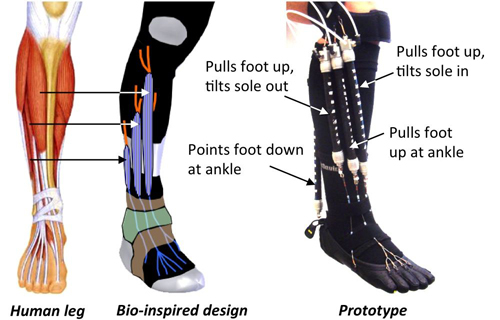|
January 23, Vol. 24, No. 26
|
Powerful Presence in Davos
|
 Carnegie Mellon is playing a prominent role in Davos, Switzerland, this week (Jan. 22-25) at the World Economic Forum, the premier gathering of thought leaders from around the globe. CMU is one of only 25 universities, 11 in the U.S., invited to participate in the Global University Leadership Forum (GULF) at Davos. Representing CMU to speak about the science of learning, advanced manufacturing, scientific research and robotics are President Subra Suresh (right) and faculty members Emma Brunskill, Justine Cassell and Ken Koedinger. About 20 CMU trustees, alumni and parents also are attending the forum. Yesterday, President Suresh introduced the "CMU IdeasLab: Unlocking the Potential of Human Learning," featuring presentations by Simon Initiative co-directors Cassell and Koedinger, and Brunskill, an assistant professor of computer science. President Suresh also was a panelist in a session titled "New Paradigms for Universities of the Future." Today, President Suresh will be identifying scientific issues to be addressed at future forums and will be among leaders exploring the evolution of human learning and its impact on the world. On Friday, he participates in a GULF forum titled "Seeking New Approaches to Critical Global Challenges" and on Saturday he'll be a panelist for "The Global Science Outlook." Today, Cassell is moderating a panel on the "Rise of Advanced Manufacturing," and on Saturday she will be participating in a session on "The Robot Revolution." Read more about CMU and the WEF. Read about The Simon Initiative. |
 Tweet All About It: Orchestra Goes Social, Sunday Tweet All About It: Orchestra Goes Social, Sunday
|
The School of Music will engage its audience in a different way this Sunday, Jan. 26, when it invites concert-goers to sit in "tweet seats," where they can discuss the concert via Twitter while the Philharmonic Chamber Orchestra performs at 7:30 p.m. in Carnegie Music Hall. Lance LaDuke, a CMU adjunct professor of euphonium (brass/small tuba-like instrument) and music business, will be leading the online discussion before, during and after the concert from the School of Music's Twitter account @CMUMusic. He hopes people will want to participate as a way of promoting a dialogue on the concert. Music faculty conferred with guest conductor Ian Hobson to ensure that he would not find the social media interaction distracting. "We believe this type of audience interaction will help people share their thoughts on music in a different way from the 'standard' orchestra concert," he said. Audience members who attend and want to participate will sit in the Carnegie Music Hall second balcony. Others who want to participate but can't make it to the actual performance may engage online while watching the simulcast. Participants should use #CMUHobson to follow or join the conversation. Students, faculty and staff are admitted free with CMU ID. Read more about the concert. Watch the simulcast. Read an NPR story about tweeting during concerts. |
Robotic Device Could Help Ankle-Foot Rehab
|
 A soft, wearable robotic device that mimics the muscles, tendons and ligaments of the lower leg could aid in the rehabilitation of patients with ankle-foot disorders, says Yong-Lae Park, an assistant professor of robotics at Carnegie Mellon. Park, working with collaborators at Harvard, USC, MIT and BioSensics, developed an active orthotic device using soft plastics and composite materials, instead of a rigid exoskeleton. The soft materials, combined with pneumatic artificial muscles, lightweight sensors and advanced control software, make it possible for the robotic device to achieve natural motions in the ankle. The robotic device would be suitable for aiding people with neuromuscular disorders of the foot and ankle associated with cerebral palsy, amyotrophic lateral sclerosis, multiple sclerosis or stroke. Park says the same approach could be used to create rehabilitative devices for other joints of the body or even to create soft exoskeletons that increase the strength of the wearer. Read more about the device.
|
Making Mobile Devices More Energy Efficient
|
 Jeyanandh Paramesh Jeyanandh Paramesh and Pulkit Grover are building novel tools and systems designed to stem the energy use of mobile devices by 50 percent or more. With a four-year, $800,000 award from the National Science Foundation, the assistant professors of electrical and computer engineering are working to establish new information theory, concepts and technological solutions to keep pace with the explosion in wireless traffic, which is projected to outpace "Moore's Law," the trend that predicts that transistor capacity will double every 18 months. "We plan to design and build prototype systems that are able to respond and adapt dynamically to the environment in order to operate with minimal energy use in changing environments," Paramesh said. Read more of the story.
|
|
See something? Say something. Help ensure the safety and well-being of the CMU community:
University Police: 412-268-2323
Ethics Hotline: 1-877-700-7050
|
|